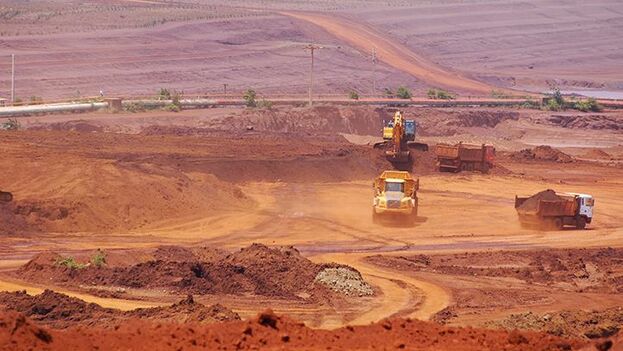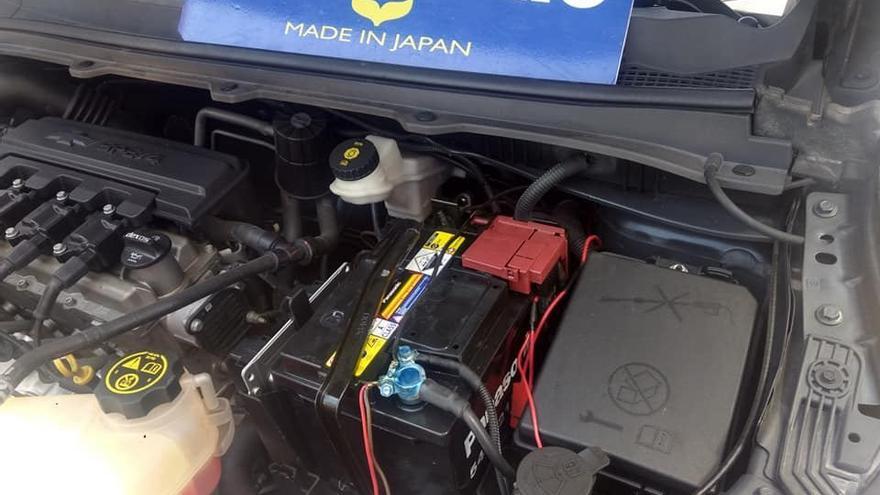
![]() 14ymedio, Havana, 15 March 2023 — The nickel that the Canadian company Sherritt International extracted from mines in Moa and Punta Gorda, in Cuba’s Holguín province, has a clear pathway to large electric car factories in the United States. In response to pressure from environmentalists, the Biden administration adopted a series of measures in January restricting domestic mineral extraction. As a result, it will now have to import products containing Cuban raw materials in violation of the U.S. trade embargo. Or so claims William Pitt, one of the heirs of the Pitt-Wasmer family, whose mines were seized by Fidel Castro in 1960.
14ymedio, Havana, 15 March 2023 — The nickel that the Canadian company Sherritt International extracted from mines in Moa and Punta Gorda, in Cuba’s Holguín province, has a clear pathway to large electric car factories in the United States. In response to pressure from environmentalists, the Biden administration adopted a series of measures in January restricting domestic mineral extraction. As a result, it will now have to import products containing Cuban raw materials in violation of the U.S. trade embargo. Or so claims William Pitt, one of the heirs of the Pitt-Wasmer family, whose mines were seized by Fidel Castro in 1960.
The new restrictions have halted mining operations of enormous mineral reserves — particularly copper, nickel and cobalt — at the Duluth Complex, an area in Minnesota that is a critical source of the country’s strategic metals. The American automotive industry uses large amounts of these raw materials to manufacture electric cars and, without access to domestic sources, must look for them beyond its borders.
In two related commercial transactions described as a “cobalt swap,” Cuba will repay the Canadian company a debt of 362 million dollars. As Pitt sees it, the deal — which was approved by the Biden administration — fits the Cuban government like a glove. “Now, it will be able to sell and export the nickel and cobalt from my family’s mines in Moa and Punta Gorda, and launder the money through another country,” he complains.
Pitt claims Sherritt sold the Cuban minerals to Panasonic to be used in batteries it makes for electric vehicles. Panasonic says it then sold the batteries to Tesla, the EV company headed by Elon Musk. “Supposedly, Musk broke off the deal once he found out where the minerals came from,” says Pitt, though he adds that neither Panasonic nor other companies in Europe and Asia have stopped buying minerals from Sherritt.
An editorial published in the Wall Street Journal in late January argues that blocking mining operations in Minnesota is politically advantageous to the Biden Administration. The state has huge, untapped deposits of copper, nickel and cobalt. However, the White House also wants to increase production of electric vehicles, for which these metals are essential components.
The administration’s action, claims Interior Secretar Deb Haaland, will protect these resources, preserve the traditional way of life of Minnesota’s native American communities and, in turn, please environmentalists. But automobile production must continue apace so the metals will have to be imported from countries that offer maximum “flexibility.” Countries like Russia, China, Indonesia, the Philipines and probably — thanks to the deal with Sherritt — Cuba.

“Cuba is moving towards and economic system similar to Russia’s,” says Pitt, one that he believes will quickly evolve into an oligarchy of millionaires who will control all sectors of the economy, including mining.
He fears the Cuban government will take advantage of its deal with Sherritt — it just paid off a portion of its multi-million dollar debt with 760 million tons of cobalt valued at 27 million dollars — to ship minerals to the U.S. Resources that once belonged to his family are being continually extracted from these mines.
“Any Cuban industry that depends on natural resources such as tourism, sugar, fishing, medicine and transportation will fall under this system and end up being controlled by oligarchs, just like in Russia,” he claims. “The irony is that electric cars from the U.S. will be powered by batteries made with Cuban metal.”
In Pitt’s opinion, the Cuban regime will always opt for “swap-outs” as a way to pay off its creditors since it does not have the monetary resources to settle its accounts, as was demonstrated in a recent legal battle it faced in London over its unpaid debt. It is not uncommon for debtor nations to resort to this type of barter exchange and Cuba has often used this method of payment.
As he told 14ymedio last December, Pitt believes the deal with Sherritt sets a dangerous precedent in terms of the regime’s negotiations with other countries and depletes one of the few valuable resources the island has left.
Another issue is the way the Cuban government manages the Pitt-Wasmer resources. “It has to figure out how to pay us, the owners of those mines, before it can do a swap to pay its debts,” he says. The family has filed suit over confiscation of the Holguín mines, which abut those of another company, the Moa Bay Mining Company. That property, formerly owned by the Rockefeller family, was also expropriated by Castro.
The Cuban government is trying to improve relations with Washington in order to ensure its economic survival and its actions can be explained as a geopolitical strategy consisting of selling off pieces of the country.
____________
COLLABORATE WITH OUR WORK: The 14ymedio team is committed to practicing serious journalism that reflects Cuba’s reality in all its depth. Thank you for joining us on this long journey. We invite you to continue supporting us by becoming a member of 14ymedio now. Together we can continue transforming journalism in Cuba.
